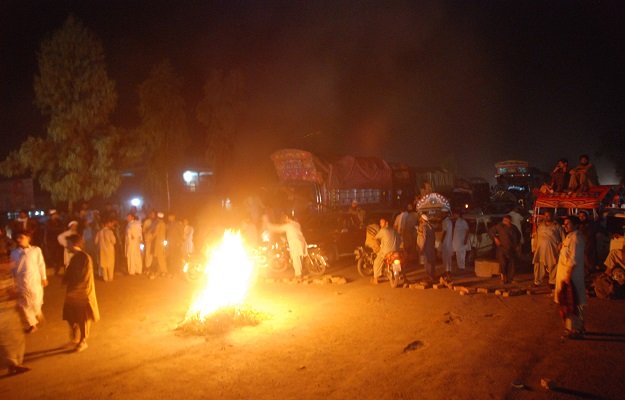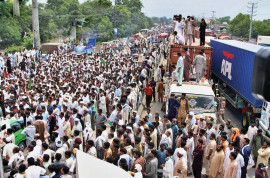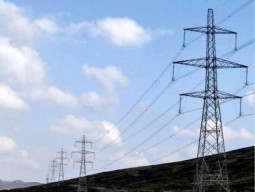
Less than 24 hours after Prime Minister Nawaz Sharif promised that there would be no power outages during Sehri, Iftar and Taraweeh times during Ramazan, the water and power ministry has backtracked from that commitment, saying that some parts of the country may witness load-shedding even during those times, in order to prevent the national grid from overloading.
On Thursday, Water and Power Minister Khawaja Muhammad Asif had addressed a news conference in Islamabad, announcing the Cabinet Committee on Energy’s decision to go through Ramazan with no power outages during Sehri, Iftar, and Taraweeh times for domestic consumers. He even announced that industrial consumers would face load-shedding during those times to ensure that the grid had enough power for domestic consumers.
However, in a statement released on Friday, the water and power ministry said that peak demand for electricity had reached 21,000 megawatts on Thursday evening, of which 17,000MW was from domestic consumers alone, even during times when industries were shut down. However, power generation typically does not go above 15,500MW and even the peak is 16,000MW. As a result of that surge in demand, there was a shortfall of 1,300MW which would likely result in some parts of the country facing power outages. The ministry appealed to consumers to conserve energy.
The ministry said that it was exploring all avenues for optimal load management to keep those times load shedding free. However, high domestic consumption patterns were creating a strain on the grid that power generation was simply not able to keep up with and as a result, the ministry will likely be unable to keep the Prime Minister’s promise in order to stop the grid from overloading. While the ministry chalks out a plan to manage the load, some parts of the country will face load-shedding.
In the Ramazan last year, the gap between supply and demand was around 2,000MW and therefore more areas and longer periods of load management had to be enforced during the iftar, taraweeh and sehri. This year, although consumption risen by about 1,000MW, improvements in the generation and distribution system have reduced the gap to 1,300MW.
The ministry has appealed to consumers to minimise their consumption and observe electricity conservation during the Iftar, Taraweeh and Sehri times so that the maximum number of areas can be provided uninterrupted power supply. The ministry has also requested the national media to help raise awareness of the need for conserving energy.
Published in The Express Tribune, June 20th, 2015.
































1714024018-0/ModiLara-(1)1714024018-0-270x192.webp)









COMMENTS (6)
Comments are moderated and generally will be posted if they are on-topic and not abusive.
For more information, please see our Comments FAQ